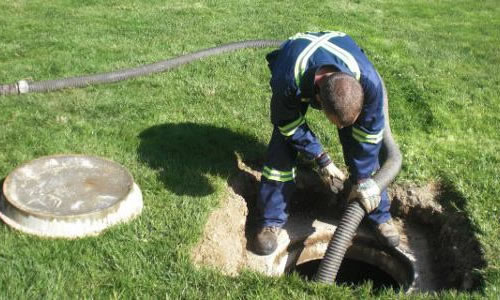
15
Understanding the causes of septic leaks is vital for proper maintenance and prevention. In this article, we will explore the key factors that contribute to septic leaks and highlight the importance of regular septic tank pumping, repair, and installation services provided by Charlotte Septic Pros.
One of the leading causes of septic leaks is the absence of regular septic tank pumping. Over time, solid waste and sludge accumulate in the tank, leading to clogs and potential leaks. Neglecting routine pumping increases the risk of blockages and puts undue strain on the septic system. Homeowners should adhere to a pumping schedule recommended by experts, usually every 3 to 5 years, depending on tank size and usage, to prevent septic leaks.
Maintenance and septic tank repair go hand in hand with regular pumping. Neglecting maintenance tasks such as inspecting and repairing damaged pipes, broken baffles, or faulty components can result in leaks. Tree roots, shifting soil, or excessive pressure from heavy vehicles can damage the pipes leading to and from the septic tank, causing leaks over time. Engaging the services of a professional septic company for regular maintenance and timely septic tank repair can help identify potential issues and prevent leaks from worsening.
Septic systems have their limits, and exceeding those limits can lead to leaks. Overloading the system occurs when excessive water or non-biodegradable substances are introduced into the septic tank. Excessive water usages, such as prolonged showers or a continuously running toilet, can overwhelm the tank's capacity and lead to leaks. Similarly, flushing non-biodegradable items like paper towels, sanitary products, or cooking grease can clog the pipes and cause leaks.
Improper septic tank installation is another common cause of septic leaks. When the tank is not installed correctly, it may not be adequately sealed or may not have proper slope and drainage. These installation errors can result in leaks, contaminating the surrounding soil and groundwater. Hiring experienced professionals for septic tank installation is crucial to ensure the system functions optimally and remains leak-free.
Excessive groundwater or flooding in the area can put immense pressure on the septic system, leading to leaks. High water tables can cause septic tanks to float or shift, causing damage to pipes or dislodging connections. Flooding can also overwhelm the system, preventing proper drainage and causing leaks. While homeowners cannot control natural disasters, they can take preventive measures, such as installing a high-water alarm system or raising the septic tank above the flood level, to mitigate potential risks.
Septic leaks can pose significant risks to the environment and human health, underscoring the importance of understanding their causes. Regular repairs by professional septic companies are crucial for preventing leaks and ensuring the optimal performance of the septic system. By avoiding overloading the system, practicing proper waste disposal, and addressing installation issues, homeowners can minimize the likelihood of septic leaks.

22
Can Bacteria Additives Eliminate the Need for Pumping? If you own a home with a septic system, you’ve probably seen…
Read more
12
A single slow drain in your home can feel like a minor inconvenience. Maybe the sink takes a little longer…
Read more
05
Are Slow Drains a Septic Issue or Just a Clog? Slow drains are one of those household problems that start…
Read more
02
What Septic Service Techs See That Homeowners Miss Most homeowners only think about their septic system when something goes wrong.…
Read more
21
Simple Habits That Protect Your Septic System A well-functioning septic system does its job quietly, but the moment something goes…
Read more
14
Pump Now or Pay Later: The Real Cost of Skipping Maintenance A properly functioning septic system is easy to forget…
Read more
11
Why Your Septic System Always Acts Up at the Worst Time Homeowners often feel that septic problems strike at the…
Read more
04
Early Warning Signs Your Septic Tank Needs Pumping For homeowners who rely on a septic system, routine maintenance is not…
Read more
29
Why Does My Septic System Smell Fine One Day and Terrible the Next? If you own a home with a…
Read more
19
Is Your Septic System Overdue? Simple Home Checks You Can Do Today For many homeowners, the septic system is a…
Read more